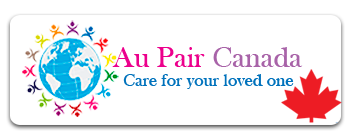Understanding Your Obligations: The Essential Guide to Hosting an Au Pair
Hosting an au pair can be a rewarding experience, fostering intercultural exchange while providing in-home childcare services. As a host family, you are expected to be welcoming, respectful, and considerate. But beyond these initial characteristics, what does it really mean to host an au pair in Canada? This article delves into the responsibilities of a host family.
Understanding the Au Pair Program
Before delving into the responsibilities of the host family, it is essential to understand what an au pair is. The term ‘au pair’, originating from France, translates to ‘on par’ or ‘equal to’. It defines an international young adult, often a student, who lives with a host family, provides childcare, and occasionally handles light household tasks in exchange for room, board, and pocket money. The au pair is not a domestic worker but a temporary family member and, as such, deserves to be treated with respect and consideration.
Host Family Responsibilities
![]() Room and Board: As a host family, you are required to provide a private bedroom for your au pair,
Room and Board: As a host family, you are required to provide a private bedroom for your au pair,
allowing them a personal space for rest and relaxation. The living arrangements should meet the basic requirements of comfort, safety, and privacy. Meals should also be provided, whether the au pair joins the family at the dinner table or prepares meals on their own with ingredients from the household.
![]() Work Hours and Compensation: Au pairs should work a predetermined number of hours per week, with sufficient time for rest and personal pursuits. Typically, au pairs should not exceed 45 hours of work per week in Canada, with at least one full day off. Fair compensation must be provided, typically in the form of weekly pocket money.
Work Hours and Compensation: Au pairs should work a predetermined number of hours per week, with sufficient time for rest and personal pursuits. Typically, au pairs should not exceed 45 hours of work per week in Canada, with at least one full day off. Fair compensation must be provided, typically in the form of weekly pocket money.
![]() Respect for Personal Time and Privacy: As the host family, it’s important to respect the au pair’s personal time. They should have the opportunity to pursue personal interests, engage in social activities, attend language classes, or explore the local community during their time off.
Respect for Personal Time and Privacy: As the host family, it’s important to respect the au pair’s personal time. They should have the opportunity to pursue personal interests, engage in social activities, attend language classes, or explore the local community during their time off.
![]() Cultural Exchange: A crucial aspect of the au pair experience is the cultural exchange. The host family should assist the au pair in learning about Canadian culture, traditions, and language. This could involve including them in family activities, celebrations, or outings.
Cultural Exchange: A crucial aspect of the au pair experience is the cultural exchange. The host family should assist the au pair in learning about Canadian culture, traditions, and language. This could involve including them in family activities, celebrations, or outings.
![]() Support and Communication: Regular, open communication is essential in the host-au pair relationship. You should ensure that the au pair feels comfortable discussing any concerns or issues they may encounter. Moreover, you should be willing to offer guidance and help when necessary. It is also important to set clear expectations and rules from the start to avoid any misunderstandings.
Support and Communication: Regular, open communication is essential in the host-au pair relationship. You should ensure that the au pair feels comfortable discussing any concerns or issues they may encounter. Moreover, you should be willing to offer guidance and help when necessary. It is also important to set clear expectations and rules from the start to avoid any misunderstandings.
![]() Health Insurance: In Canada, it’s the host family’s responsibility to ensure the au pair is covered by health insurance. Each province has different requirements for health coverage, so host families should research and understand their obligations.
Health Insurance: In Canada, it’s the host family’s responsibility to ensure the au pair is covered by health insurance. Each province has different requirements for health coverage, so host families should research and understand their obligations.
![]() Transportation: If the au pair’s duties involve driving children to school or other activities, the host family should provide access to a vehicle. It’s also the family’s responsibility to make sure the au pair has the appropriate driver’s license and understand local driving rules.
Transportation: If the au pair’s duties involve driving children to school or other activities, the host family should provide access to a vehicle. It’s also the family’s responsibility to make sure the au pair has the appropriate driver’s license and understand local driving rules.
Conclusion
Hosting an au pair in Canada comes with a set of responsibilities. It’s not just about receiving help with childcare; it’s about sharing your home and family life with an international young adult eager to learn and grow. Understanding these host family requirements and making sure you can meet them is key to ensuring a successful and enriching experience for both the host family and the au pair.






